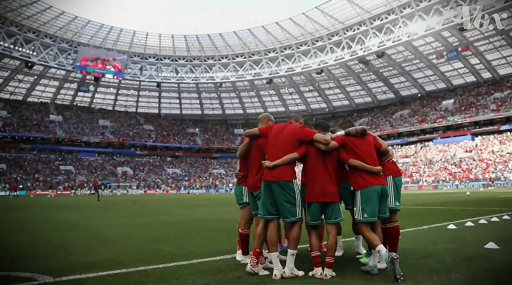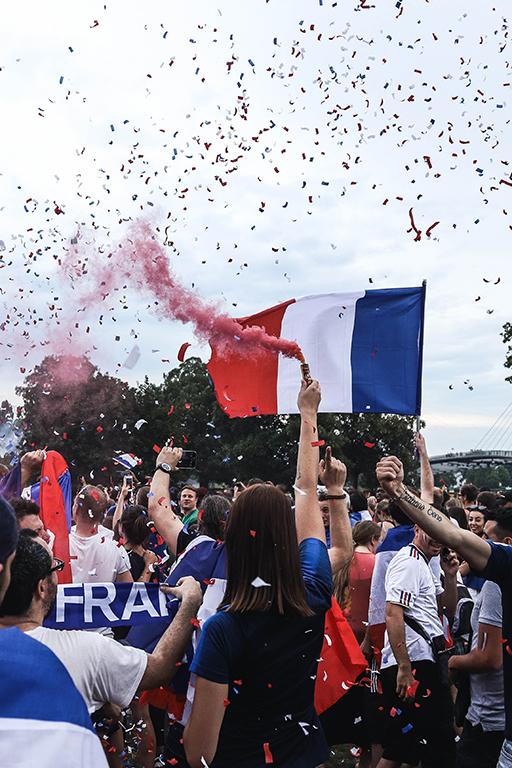3 Nationality: a claimed win for diverse France?
Colonial relations have played a significant role in the development of various footballing nations and international relationships. In France, opportunities afforded by colonialism have had a largely positive impact on their national team, and the team have often been considered as representing ethnic diversity (White, 2018). On both occasions when they won the men’s World Cup (1998 and 2018) more than 50 per cent of their players had at least one parent who was not born in France.
You may recall the video used in Session 1 which highlighted how the French team was put at the front and centre of the nation’s campaign on diversity following their victory in 1998. The slogan ‘Black Blanc Beur’ (Black, White and Arab) was used in the media to celebrate a supposed integrated France (Smith, 2018), a nation which some long considered as the most racially divided country in Europe (Hussey, 2006). In the lead up to the 2022 men’s World Cup one journalist wrote ‘football is an intensely political issue in French society, where it straddles racial and religious divisions’ (Sage, 2022).
Activity 3 The development of multicultural France
Watch the video below from Vox, an American news site, which outlines how France developed into a more multicultural society, and its subsequent influence on football. As you watch, think about the following questions:
- Why was there an influx of immigrants into France post Second World War?
- What long-term impact did this influx have on France’s national football team?

Transcript: Video 3 Why France produces the most World Cup players
[MUSIC PLAYING]
Discussion
- Post Second World War labourers were recruited from Europe and French colonies to help repair the damaged caused by the conflict. A labour shortage in the 1960s and 70s saw more immigrants arrive from French colonies in Africa and the Caribbean.
- France struggled to qualify for several international tournaments throughout the 1960s and 70s. Consequently the French Football Federation created a national structure for developing talent. Over the years several elite players, including those in both their World Cup winning squads, were immigrants themselves or children of immigrants who came to France following both the war itself, and from Algeria in the aftermath of their independence from France in 1962.
Despite being hailed as the symbol of a new harmonious multiracial nation in 1998, some years later football became a ‘racial battleground’ through representing the polarities of the French population (Hussey, 2006). Developments in France and many other nations emphasise Anderson’s (1991) concept of the ‘imagined community’, through which the significance of sport in expressions of nationality result in bringing a nation together and help people to perceive themselves as one nation (Nosal et al., 2021). This raises questions over whether eleven individual players really represent a national community.
Evidence suggests a supposed unity when teams are winning. Yet, as seen during France’s mediocre performances between 2001 and 2017 and Germany’s Mesut Özil’s experiences, when performances aren’t meeting expectations all sorts of other issues get propagated. This shows an uneasiness around the representation of the football nation by players with migration backgrounds, and also the fragility of national belonging (van Campenhout and van Houtum, 2021).

